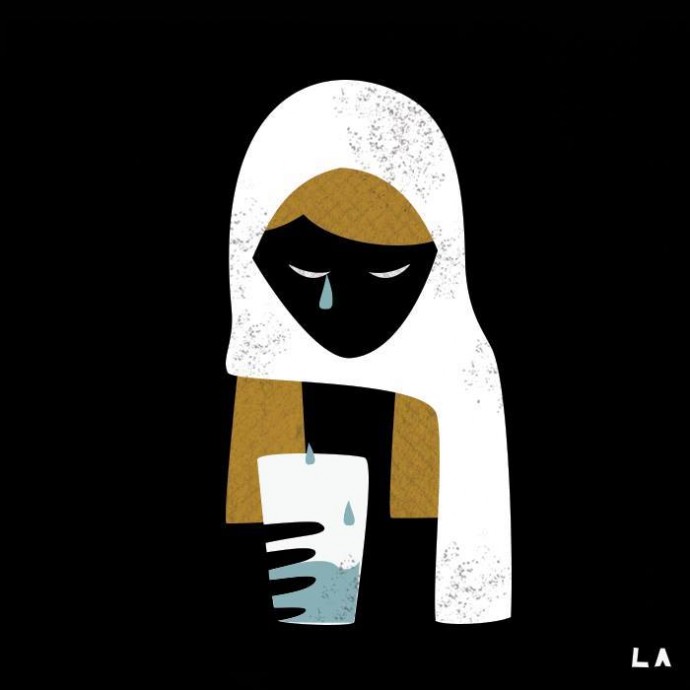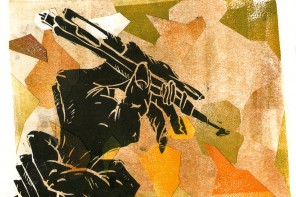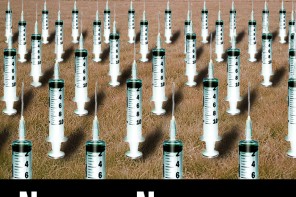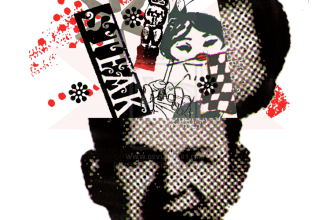Among Iraq’s many victims of the terror of the Islamic State in Iraq and the Levant (ISIL) are the Yazidi People. Yazidi people are an Iraqi ethno-religious minority, mainly living scattered across north-west Iraq, north-west Syria and south-east Turkey. Because of their ancient beliefs, and their names, they are considered “devil worshipers” by IS and by other Sunni extremists. They are misunderstood people who are persecuted by their neighbours. Many Yazidis have been killed and tens of thousands of Yazidis who have escaped from ISIL terror are struggling to survive.Trying to escape the terror, some Yazidis fled to the mountains in northwest Iraq where they were trapped without food or water, facing death. They expect international attention and help. Rudi Vranckx, a conflict journalist working for VTR News in Belgium, was there, and he witnessed the tragedies of the Yazidi people. Rudi spoke to Sensa Nostra about his perspective on the Yazidi massacre in Iraq.
I was staying in Baadre, in the north of Iraq. There were a hundred Yazidi refugees staying in the same house as me, and the whole area was full of the Yazidis who managed to escape from Sinjar Mountain and the area around it, in the direction of Mosul. While I was in Baadre, I also went to the Iraq-Syria border, where I spoke to the border commander. He said that more than a hundred thousand people had crossed the border to go to the parts of Syria which are under control of the PKK (the Kurdistan Workers’ Party), and to Iraqi Kurdistan. These people were in a difficult situation: living in unfinished buildings, with all their schools occupied, and lessons therefore given in parking lots and parks. Moreover, what seems to be most important, they had lost all hope of living in a multi-ethnic, multi-religious society—which that part of Iraq used to be. So they basically said that they didn’t need practical help, they just needed to get out of there.
The first refugee wave consisted mostly of Christians who came from Mosul, and its surrounding area, to Erbil and Duhor. Firstly they were in the area of the Christian towns of northern Iraq. They have some kind of help now and they are with their families, but it is going to be hard for them to cope with the winter.
The new wave of refugees was made up of Yazidis who were living in very difficult conditions. I saw people who had to live in the open around building sites, and had to deal with extreme heat of 40 to 45 degrees Celsius—but they were also afraid because in a month’s time it would be winter. For example, people were saying that the children were getting sick every day, and that they had to bring them to the hospital already. So if the conditions remained the same when winter comes, disease would spread and lead to a catastrophe.
When I was there, there was no proper organization to help the people. So I spoke to the governor of Dohuk (a city in Iraqi Kurdistan which Yazidis had escaped to). He surprisingly was very frank and open. He said he could not cope with the refugee situation. The Iraqi government had cut all of the fundings going to Dohuk because of some kind of power game between the regions of Iraq. Certainly, the governor there had given the refugees everything he could. He should be providing water and basic food, but there was no money for it until just now. He was asking the international community to start helping those people, simply because he couldn’t do it. The governor did have the water, but he didn’t have enough money to be able to deliver water to the refugees. So it was not about sending airplanes and throwing boxes, but it was about getting organized international help.
The day I left for Belgium, German planes and Belgium planes also left for Iraq to help. But I did not get the impression of a properly organized aid project. What I also saw in the Faysh Khabour, one of the borders between Iraq and Syria, was a big camp which received international aid. The camp used to serve tens of thousands of people coming from the Syrian civil war, but these people were moved to another camp in the north so that the Yazidi people could move in. The Yazidi have been there for two to three weeks now. These people told us, “Nobody is helping us. We are not allowed to leave from here. There is not enough for us to survive.” All this made me feel that, even in a so-called organized camp, the conditions are very critical.
Some Yazidi people say they have good relations with their Arab neighbors, but there are also many who told me that they don’t trust their Arab neighbors anymore. Especially people around the city of Sinjar, because some Arab people in Sinjar helped ISIL and betrayed the Yazidis. So there is an atmosphere in which people don’t trust each other anymore, and I don’t know in which direction this will lead. There are too many wounds to heal. There is a lot of mistrust, and anger is at its ultimate level.
There are too many wounds to heal. There is a lot of mistrust, and anger is at its ultimate level.
On the one hand, the reason for the betrayal of the Arab neighbours was their fear of ISIL, and on the other hand, the Sunnis also felt betrayed by the Al-Maliki government because it did not send them funds and had acted unjustly. So there was anger boiling amongst the Sunni Arabs… But this is a conflict which began during the Saddam regime, tens of years back.
Many women and children are being kidnapped by ISIL, and nobody knows where they are or what their fate will turn out to be. I spoke with some survivors of a massacre in Kocho, a small village about 15 kilometers south of the town of Sinjar. Every single one of them talked about the loss of women and children.
Three survivors I spoke to were almost killed in the Kocho massacre. After being wounded, they crossed the border to Iraqi Kurdistan and were helped by the PKK. Women and children were separated from the men. Their money, gold, and cell phones were taken. ISIL men took the men outside the village and gathered them in a school. Afterwards, they put them into trucks, each truck carrying fifteen to twenty people, and took them away. First, ISIL started to film them, and then they lined the men up and shot all of them. The survivors had been shot as well, but they were trapped behind the dead bodies of the others. They did not dare move until there were no shots anymore. Afterwards, they fled, but they were found by Kurdish guerillas.
Afterwards, they put them into trucks, each truck carrying fifteen to twenty people, and took them away. First, ISIL started to film them, and then they lined the men up and shot all of them.
Although I mainly spent my time with Yazidis, I also spent some time with Peshmerga, the armed forces of Kurdistan. I think their spirits were high due to the US bombings on ISIL. It was different a few weeks ago, when ISIL threatened the outskirts of Arbil (the capital of Iraqi Kurdistan), because nobody understood why the Peshmerga left so early. When I spoke to Peshmerga soldiers, they said they had been given orders to retreat. So they retreated until they were on the hills, because they admitted that they were outgunned by ISIL and they couldn’t fight properly against them. But it is not just about saving the army, but also about sending a message to the world for help.
PKK came out of their mountains and their camps and they went to the front line. They made significant differences in the beginning. They didn’t follow a specific political path, so they gained a defending role in this conflict. They gained the role by their Syrian territory to save the Yazidis from Sinjar and from the battles in Mahmur, and to stop ISIL advance. They put themselves in the middle of everything. They are now playing a constructive role on the military side. So PKK used this opportunity to change their role.
I met a volunteering Peshmerga from my city in Belgium. He was doing business in the north of Iraq, and then decided to join the Peshmerga because his uncle was a commander in the army. He wanted to make a contribution in the same way his uncle did. His whole story of what is happening there is very much alive, and it gives me a strange feeling. People come from places thousands of miles away to fight with ISIL. At the same time, other people, who come from the very same places, support Peshmerga against ISIL.
I really would like to go back. Nevertheless, it should be for a different reason. Maybe to see what is happening inside ISIL, or if there is a breakthrough in Mosul, or to go to Syria… You have to tackle an issue by looking at it from different angles. So I think it is important for me to go for a different angle. It is still too early to see what this conflict will lead to.







